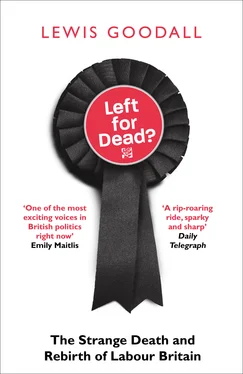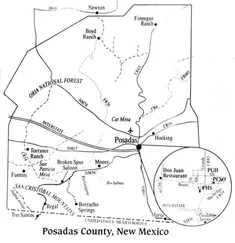Today, Blair is unrepentant. He maintains that he was right to be straightforward about the inevitability of globalisation, telling me:
‘I wasn’t zealous about globalisation the way you described it; I was saying it was a fact. I haven’t decided as a matter of policy that the world is changing in this way, it is changed in this way and it’s changing for reasons to do with technology, with trade and migration; things that no single government or country either can stop or will stop … I was aware of the potential for a populist backlash from early on. So the thing I find odd about today is that people accuse me of allowing populism to develop; yes, sure, they were developing when I was in power it’s true but I was dealing with them. Social democracy is shifting because the workplace has also been shifting – therefore many of the things that are happening today are the product of new coalitions in politics and new fragmentation of politics that has been going on for a long period of time. What we did very consciously was create a coalition that could see us through that process – why was it both before becoming leader and after, I obsessed about law and order? Some people thought it was some sort of fetish. But it was because I could see that for working people who we traditionally represented a mere economic message was not enough, we also had to be dealing with their problem with security and the changing nature of their communities because of migration. These were questions that we were actively working on and we should have been actively carrying on working on, but what happened after 2007 was a feeling that we went too far on that stuff, that we should actually pull back – whereas that was never the answer; the answer was to carry on; all of those issues were going to intensify.’
It is true that Blair rightly identified the social conservatism of many of his voters (something often ignored by the current Labour leadership) and acted accordingly. But often that sat uncomfortably with New Labour’s deep economic liberalism and laissez-faire approach to globalisation – for example, the 2004 decision to allow untrammelled migration from eastern European accession states to the EU was thought permissible because it pleased Blair’s economic liberalism – but no matter what safeguards he put in place in the form of ID cards or extra police, he seemed little able to assure his voters. Rather, as so often, he found himself in the worst of all worlds, annoying every constituency of opinion. His traditional working-class voters were irritated by his openness to migration while his culturally liberal middle-class voters were lured to the Lib Dems and others on the basis of the draconian social policies Blair instituted to compensate. This helps explains the hollowing of the Labour vote, to only 35 per cent by 2005 – bleeding in every direction, to the authoritarian right and the liberal left. Both offending strands of Blair’s thought became more pronounced and problematic as time proceeded. Even for critical friends of New Labour this is difficult territory. All the more difficult because it isn’t where Blair began, as Jon Cruddas explained to me:
‘The danger is we get further away from it and we look at it more and more in the one-dimensional sense through the rearview mirror: New Labour was this or that. I remember going into Downing Street the day after we won in ’97 and at that stage there wasn’t one Downing Street, there were many Downing Streets – more liberal Downing Streets, more communitarian, more European, more Eurosceptic, people who wanted a more systematic labour market structure, or refinancing the public services or tax policy – but what I’m trying to get at is that it was a lot more plural political project than people give it credit for especially across the left now. The question is how it’s shrunk over time – which is very dangerous in terms of the collective memory of the left and the Labour Party, but it has lost nuance, and the character of it has diminished over time. In turn, Blair changed over time: compare the speeches of 1995–6 to 2004–5 – they are very different characters. The arc between those speeches explains that change in dynamics. It lost its ethical components primarily and became quite a dystopian liberal sink-or-swim agenda by the end. Where you can trace it back to is his philosophical reference points, his spiritual and ethical history, who he studied with at Oxford, his letters and communications in Opposition. You can trace a more thoughtful ethical and moral dynamic to a social democratic agenda, and over time it became empty, and more economistic and instrumentalised and cold – it lost its soul over time.’
In other words, to begin with New Labour retained a starkly moral component, a strong critique of and distaste for the worship of Mammon and the individualism of the Thatcher and Major years. Blair, whose political philosophy, like that of the early Labour Party leaders, was far more influenced by the teachings of Mark and Matthew than Marx and Engels, felt comfortable on this terrain and even invoked scripture. He told a Labour conference in the mid-1990s:
‘Socialism for me was never about nationalisation, or the power of the state, not just about economics, or even politics. It is a moral purpose to life. It is how I try to live my life. How you try to live yours. The simple truths: I’m worth no more than anyone else; I am my brother’s keeper; I will not walk by on the other side. We are not simply people set in isolation from one another, face to face with eternity, but members of the same family, same community, same human race. This is my socialism.’
He said this at his second conference as party leader. On the platform, as a special guest, was Mary Wilson, the widow of the recently deceased Harold, who had once said that ‘the Labour movement is a moral crusade or it is nothing’. Wilson was right. The link, physical, intellectual and ethical, from New Labour to old was there for all to see. It was only later, in the mid-2000s, that Blair appeared to choose to sever that link, in that his philosophy had mutated into something quite alien to Labour tradition. In that, Blair sowed the seeds for the trashing of his own reputation, the Blairites’ loss of Labour’s crown and eventually even Britain’s repudiation of the sort of moderate, centrist politics that Blair had so hoped to permanently embed.
LET’S SEE WHAT YOU COULD HAVE WON …
In pure Labour terms, the party from its inception had the trappings of religion. We live in an age characterised by a caustic suspicion of politicians and their motives, yet we have not to go back too far into history to see a missionary evangelism about politics and a particular fervour associated with socialism and the Labour Party. It is not for nothing called ‘the Labour movement’. That movement and ideological crusade was at its zenith in Attlee’s 1945–51 administration. Imagine a contemporary politician of any stripe speaking with the moral and political certainty, if not the evangelical overtones, of his deputy prime minister, Herbert Morrison: ‘The good Socialist works with religious zeal for the redemption of mankind from the evils of poverty and ignorance. … He is conscious of the beauty of the ideal … he works … for the deliverance of the human spirit from the enslavement of material things.’11
It’s hard to imagine Peter Mandelson’s grandfather as Moses but there we are. And such a sentiment was not unusual. At Labour’s birth, and for much of the twentieth century, for many people it was nothing less than an article of faith that a Labour government, and ergo the use of state power, would positively influence their lives. A fusion of class attachment and group thinking led to a solid conviction among a significant portion of the population in the importance of voting Labour. The state could and would tame capitalism and help build that new Jerusalem for the working class. Over time, however, that faith, in both Labour as an entity but perhaps more crucially in the state’s capacity to ameliorate social conditions, has eroded. Time and again, up and down the country, I’ve heard voters tell me some variant of the same thing, as one elderly lady in Manchester explained: ‘I’ve voted Labour always. It’s just what we did. My mum told me, we were poor so we voted Labour, for our own kind. The rich vote Tory and we don’t.’ These are not unique insights, they’re sentiments the like of which would have been repeated countless times in families up and down the country for decades, including in my own family. Yet, unfortunately for Labour, what she went on to tell me has become an all too common addition: ‘I don’t vote Labour any more. Doesn’t matter who gets in. Nothing ever changes.’ Leave London or any of the big cities and this sense of powerlessness among voters is as palpable as it is ubiquitous, especially among Labour voters.
Читать дальше












